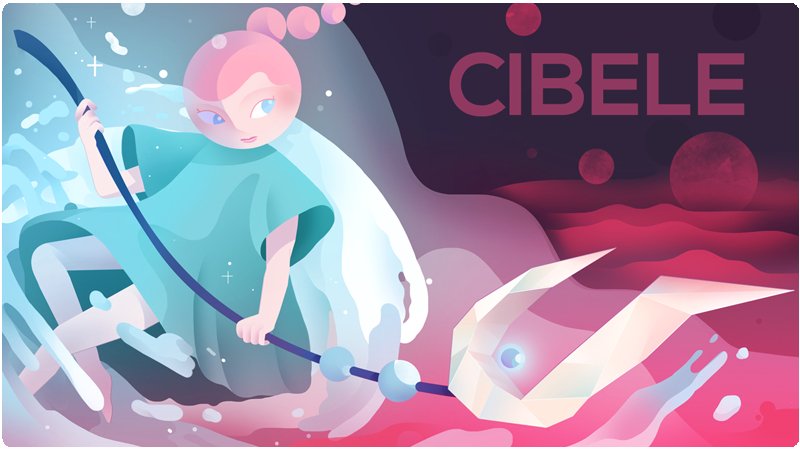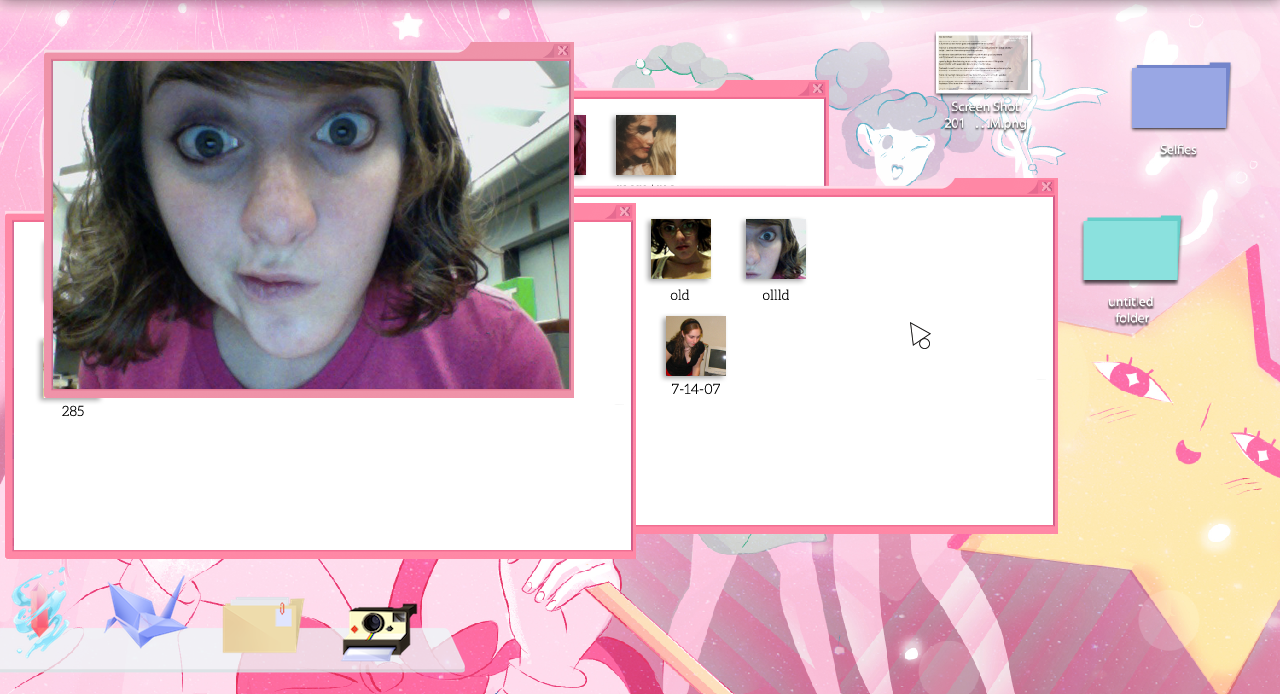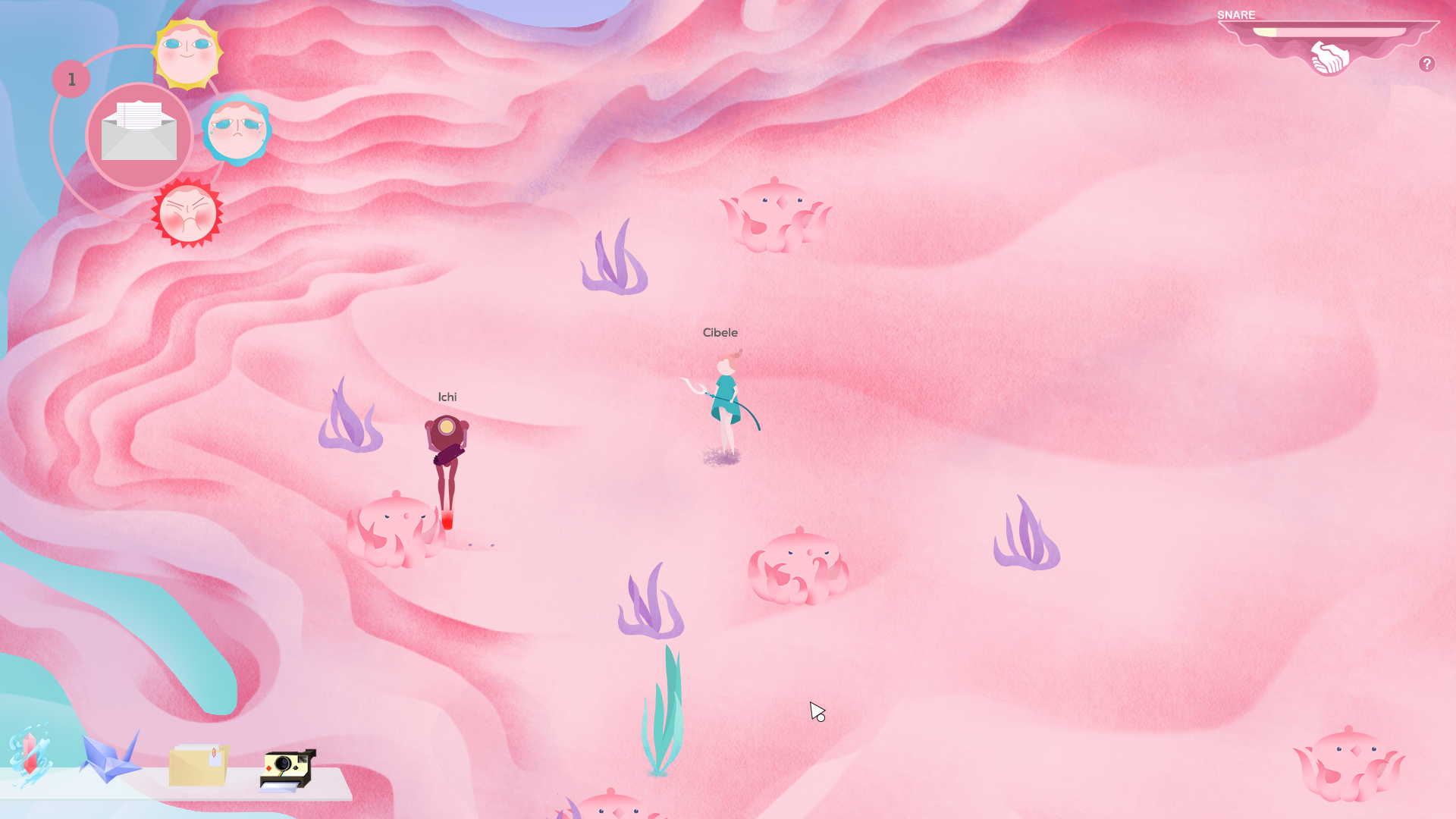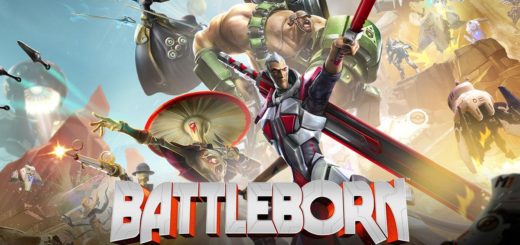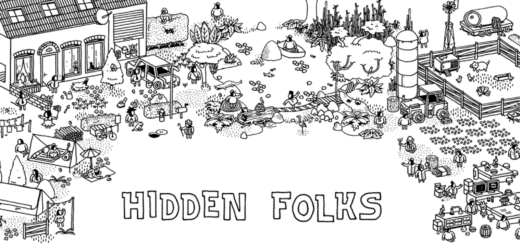CIBELE Review
CIBELE is one of those experimental games that’s really more of an experience than a traditional game. An indie, interactive story that clocks in at just under two hours, CIBELE explores the relationship between Nina, a college-aged girl (played by the game’s primary developer, Nina Freeman) and a boy she knows only through their mutual experience of playing an MMO called “Valtameri” together. The story is told in acts and is advanced by the player playing through the online game as Nina.
From a pure gameplay perspective, it’s rather simplistic; click on small monsters with your online buddy to lure out a big monster, then click on that one till it goes poof. The appearance of the game mirrors the gameplay in that the visuals during the MMO segments are two-dimensional and simple, more like illustrations than anything else. The music is also simple, yet strangely haunting and eerie at times (it’s also available for sale in a special bundle). But the real heart and soul of the game is not in the MMO gameplay; rather, it’s the story told at the desktop. If anything, CIBELE is a computer simulator.
Perk Unlocked: “Recycle Bin”
CIBELE was featured at this year’s IndieCade, and while she was there, Freeman (who also developed HOW DO YOU DO IT?) spoke about the nature of intimacy in video games, referring to not only romantic relationships between characters but also the ability of video games to put the player in the brightly-colored hair of the protagonist and make them understand their wants, desires, and feelings. She explained that that’s what she tried to do with CIBELE, and the way the game accomplishes this goes back to its nature as a desktop simulation.
Here Thar Be…Anthropomorphic Pink Fluff Balls…
Immediately upon starting the game the player is met with the giant, brightly colored menu of Nina’s computer. The player can then go through the desktop’s files, uncovering photos of Nina with her friends, as well as messages, archived blog posts, and poetry. Exploring these files has an interesting voyeuristic tang to it, even if they are technically “yours”. The player can go through the entire game without looking at these images and files, only opening chat logs and photos when the game prompts them in the MMO segments. During these segments, the story of Nina and her flame Ichi (whose real name is revealed to be Blake) are played out through audio conversations, followed by live-action cutscenes of Nina. Just through the MMO segments the player can get an appreciation for what the game is trying to do and say, but these additions provide a deeper exploration into Nina’s psyche. They explore who she really is and how her relationship not only affects her, but those around her.
The game resonated with me for a number of reasons, among which was that I felt I had a complete sense of who Nina was: a sort of dorky girl with a penchant for poetry and video games, who has a deep and storied history with anime. She’s one of those girls from your high school that was always carrying around Pocky for some reason and could never explain where it came from. She’s shy around people she doesn’t know and has a slight anxiety issue, so meeting folks without having to look at them is an excellent arrangement for her.
This is the face of a girl who owes her sexual awakening to Tuxedo Mask from SAILOR MOON
CIBELE struck a chord mostly because I could empathize with both main characters, often to my chagrin. At one point during an MMO segment, Blake is unabashedly flirting with Nina and says something akin to “You could literally wear anything and it would be pretty.” Son of a bitch, I’ve said almost that exact same thing when trying to woo someone. Seeing myself in Blake (who is a DICK) was a particularly cold splash in the face. I had a feeling this relationship wouldn’t end well for Nina, and I was very engrossed with identifying myself with her character, being the protagonist and all. The severity of introspective self-examination on my part was unprecedented; I was intrigued by the concept, dammit, and I didn’t sign up for these feelings.
“Critical life re-evaluation” was not mentioned in any of the Steam user reviews
CIBELE explores trust, anxiety, relationships, and their mercurial nature with a poignant edge, even delving into the modern-day romantic trappings of the internet and selfies to a staggering degree. I feel that with this story, Freeman succeeded in her exploration of intimacy through video games seeing as I was able to fully understand what was going through the heads of both characters. The autobiographical nature lends a sense bravery to the game, as according to Freeman this situation was an event she experienced herself. CIBELE deeply resonated with me and is an important story for those dealing with love in the age of Skype.
Verdict: Recommend
Reviewed on PC

